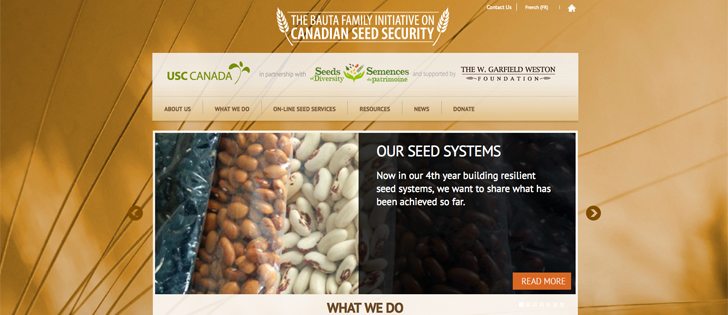With a fortune of more than $10 billion, the Weston family of Toronto can support any charity they choose.
While there are a lot of worthwhile causes in Canada, from cancer research to school breakfast programs, one member of the family is using a portion of her wealth to back an obscure issue: seed security.
“Having grown up in a food producing, specifically baking, family, I’ve always been interested in heritage grains and how you can taste the impact of different varieties of wheat in bread,” said Gretchen Bauta, daughter of W. Garfield Weston.
Read Also

More factors affecting winter weather
When you combine a weak La Niña, early Siberian snow, and a warm northern Pacific, it’s easy to see why long-range winter forecasting is so complex.
The Westons got their start in the baking business and are now best known for owning Loblaw’s, Shoppers Drug Mart and Weston Foods.
Bauta is a director with the W. Garfield Weston Foundation, the primary benefactor of the Bauta Family Initiative for Canadian Seed Security.
The objective of the initiative, according to its website, is to increase the diversity of ecologically grown Canadian seed and promote public access to seed because “75 percent of the world’s food comes from 12 plant and five animal species … (and) in the past 100 years we have experienced a loss of up to 75 percent of the genetic diversity of food crops.”
Bauta, who responded by email because she was travelling, said she learned from Sharon Rempel, an agronomist from British Columbia, that seed diversity is critical for a resilient food system.
“I realized seed security was a gap that needed to be addressed in Canada in a systematic way, and I knew this was an initiative I wanted our family to support,” she said.
“There is a lot to celebrate in modern farming but we need to acknowledge what has been lost. The narrowing of diversity is a concern and we need to ensure farmers have the resources, like seeds, that they need to adapt to a changing climate.”
The Bauta Family Initiative began in 2013, but the organization has already made progress on seed security in Canada, including a plant breeding program that it runs in co-operation with the University of Manitoba.
The program is developing seeds and traits specifically suited for organic production methods.
“Farmers help establish the goals of the program … and selection is conducted on farms, by farmers, rather than at a research station,” the Initiative’s website says.
Seeds tailored for organic production are needed because “95 percent of the crop varieties … were developed for conventional systems with routine use of synthetic fertilizers and pesticides.”
Jane Rabinowicz, director of the initiative, said the number of farmers in the program has increased and the project is moving forward on new varieties of organic oats, wheat, corn and potatoes.
“We’ve got some populations (cultivars) that are showing some really great results, specifically for wheat … in terms of yield and nutrients and in terms of competition with weeds,” she said.
The leaders of the plant-breeding program have a tough choice ahead because they haven’t decided how to register the varieties.
That could be complicated be-cause it’s not clear who will own the technology and the royalties.
“How do you sort out intellectual property rights in a participatory plant breeding program?” Rabinowicz said. “For me, I have more questions than answers on this.”
In the meantime, Rabinowicz is grateful that Bauta is committed to seed security because it’s hard to convince most Canadians that genetic diversity of seeds is a significant issue.
“Seed security is not the number one philanthropic (cause),” she said. “It’s not top of mind for most Canadians. It’s really incredible to have a partner like Gretchen who gets it.”
After visiting farms across Canada, Bauta said she is confident Canadians are making progress on seed security and diversity.
“If we … listen to farmers about what is changing in their fields, protect soil through crop rotation and composting, and work together, I am confident in the sustain-ability of seed and food production in Canada.”
For more information, visit www.seedsecurity.ca/en/.
















